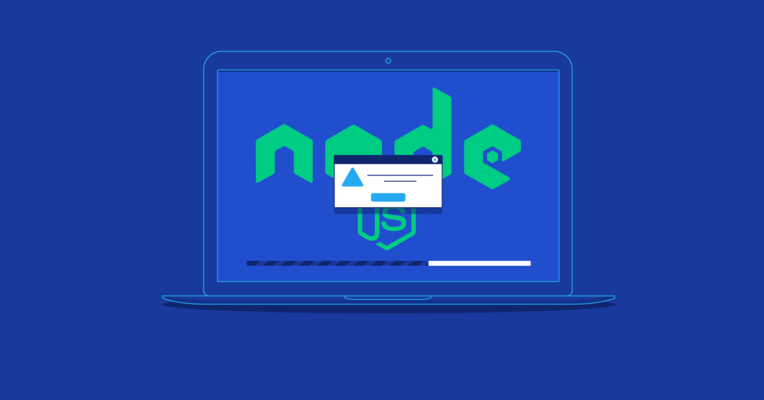The Demand for Electron.js Developers Continues to Rise
As businesses race to deliver seamless digital experiences across Windows, macOS, and Linux, the need for flexible system-agnostic desktop applications has never been greater—and Electron.js is leading the charge. By enabling developers to build high-performance apps using familiar web technologies such as JavaScript, HTML, and CSS, Electron has become the go-to solution for companies seeking speed and scalability.
The popularity of cross-platform applications represents a rapidly expanding market. According to Persistence Market Research, the global market for cross-platform app development frameworks is projected to grow at a compound annual growth rate of 16.8%, reaching $546 billion by 2033. This explosive growth is driven by organizations across industries—from tech and finance to e-commerce and media—prioritizing development approaches that reduce costs and broaden reach without compromising performance.
Leading tech players like Microsoft, Slack, and WhatsApp rely on Electron.js—originally developed by GitHub—to power their desktop applications, proving it can scale to meet enterprise-grade demands. But as adoption increases, so do expectations. Today’s businesses need software development professionals who can optimize performance, manage memory consumption, enhance security, and integrate seamlessly with cloud-based services.
Hiring top-tier Electron.js talent is now a strategic imperative for any organization serious about delivering robust, scalable desktop software. This guide will help hiring managers and recruiters find, evaluate, and hire top talent to meet their business objectives.
What Attributes Distinguish Quality Electron.js Developers From Others?
Skilled Electron.js developers combine deep architectural knowledge with performance-conscious, user-focused engineering. They understand how to build and deliver secure, streamlined desktop apps that integrate seamlessly with Windows, macOS, and Linux and meet real-world business demands.
At a technical level, Electron.js developers must be proficient in JavaScript and familiar with modern frameworks like React.js, Vue.js, or Angular to build interactive UIs. They also possess strong expertise in Node.js, which powers Electron’s main process and enables back-end logic, file system interactions, and API integrations. A solid grasp of Chromium rendering, asynchronous programming, and memory management is essential to ensure efficient application performance.
Security and performance are non-negotiable in production-grade Electron applications. High-quality developers implement best practices like context isolation, secure inter-process communication (IPC), and Content Security Policy (CSP) enforcement to reduce the risk of vulnerabilities. They are also adept at minimizing CPU and memory usage through techniques like lazy loading and offloading compute-heavy logic to background processes, resulting in faster load times and smoother, more responsive applications.
Beyond their raw technical skills, top-tier Electron.js engineers excel in problem-solving and collaborating with cross-functional teams. They must communicate effectively with designers, back-end developers, and product managers to create applications that align with specific business and project goals. Their ability to translate complex technical requirements into high-quality applications makes them a strategic asset to any development team.
How Can You Identify the Ideal Electron.js Developer for You?
The ideal Electron.js developer depends on your project’s complexity, your business needs, and available resources. Whether you’re building a simple MVP or maintaining a large-scale desktop application, understanding the experience levels and technical scope needed will help you make the right hire.
Junior programmers may have limited professional experience but can contribute to basic tasks such as UI implementation, bug fixing, and minor feature enhancements. They thrive in environments that offer mentorship and structured collaboration, and they can be a cost-effective solution for startups or teams with experienced technical leads who can provide guidance.
Mid-level programmers with two to five years of experience can manage more complex development tasks with minimal supervision. They can integrate front-end components with back-end APIs, implement security best practices, and optimize application performance. These developers balance autonomy and collaboration, making them well-suited for growing teams or projects that need reliable, skilled contributors.
Senior engineers bring five or more years of experience and a deep understanding of the framework’s architecture. They are skilled in performance tuning, memory management, security enhancements, and enterprise-level architecture. Often serving as technical leads or project owners, they guide overall application structure, enforce best practices, and mentor junior team members. While they represent a more significant investment, their impact on long-term scalability, stability, and code quality is significant—especially in complex or business-critical environments.
Complementary Technology Skills for Electron.js Developers
While deep knowledge of Electron.js is essential, the best developers bring a broader technical toolkit that strengthens their ability to build scalable and secure desktop applications. The following technologies and competencies complement Electron.js application development and should be considered when evaluating candidates:
JavaScript (ES6+): As the foundation of Electron development, modern JavaScript fluency is non-negotiable. Proficiency in ES6+ features—including modules, arrow functions, async/await, and destructuring—enables developers to write clean, maintainable, and performant code across both the main and renderer processes.
Front-end Frameworks: A firm grasp of front-end frameworks is key to building rich, responsive user interfaces within the renderer process. React is particularly popular in the Electron ecosystem due to its component-driven architecture and compatibility with modern tooling. Familiarity with one or more of these frameworks allows developers to deliver consistent UI experiences and reuse logic across platforms and devices.
Node.js: Electron’s main process runs on Node.js, so developers must be comfortable writing asynchronous, event-driven code. Node.js skills are essential for tasks like interacting with the file system, managing system processes, authenticating users, and integrating with local or remote APIs.
Operating System Knowledge: Electron apps interact closely with OS-level functionalities such as file storage, system notifications, menus, and hardware access. Developers who understand how desktop operating systems handle permissions, file paths, native menus, and process isolation are better equipped to build stable applications with native-like behavior across Windows, macOS, and Linux.
Performance Optimization: Optimizing Electron apps requires attention to memory usage, CPU load, and application startup time. Developers should be familiar with techniques like lazy loading, bundling, and splitting code for better rendering performance, particularly on resource-constrained devices.
Security Best Practices: Security is a critical concern for Electron apps, which often have deeper access to system resources than traditional web applications. Developers should be able to implement protections such as sandboxing, context isolation, secure IPC validation, and strict CSP enforcement.
Build and Deployment Tools: A developer’s ability to package, update, and ship applications efficiently can significantly reduce time to market. Familiarity with Electron Forge and Electron Builder enables streamlined builds, cross-platform packaging, code signing, and background updates. This ensures smoother releases and reduces maintenance overhead in production environments.
How to Write an Electron.js Developer Job Description
Crafting a compelling job description is essential for attracting top Electron.js talent. Use a clear title like “Senior Electron.js Developer” to clarify the role’s level and focus. Provide a succinct overview of your company, highlighting your mission and how desktop software supports your overall business goals. This context helps prospective employees understand how their experience contributes to your company’s success.
Emphasize the necessary technical abilities, such as mastery of front-end frameworks, Node.js, and JavaScript. Indicate if you have preferred knowledge of cloud platforms, CI/CD pipelines, or other security tools. Mention advantages like the opportunity to work on meaningful projects, career growth opportunities, and remote work flexibility to make the position appealing. Finally, streamline the application process by providing clear instructions on how to apply and what to expect during the hiring process.
What Are the Most Important Electron.js Developer Interview Questions?
Hiring an Electron.js engineer requires assessing their technical expertise, problem-solving skills, and ability to build secure and scalable desktop applications. The following interview questions delve into key areas of Electron.js development to assess a candidate’s breadth of knowledge and real-world experience.
How does Electron.js work, and what are its key components?
Electron.js enables developers to create cross-platform desktop apps using web technologies like JavaScript, HTML, and CSS. Unlike traditional web applications, Electron apps operate as standalone desktop programs by bundling a Chromium browser and a Node.js runtime into a single package.
Candidates will demonstrate a clear understanding of Electron’s two core processes: the main process, which controls the application lifecycle and manages system-level interactions, and the renderer process, which is responsible for rendering the user interface. They’ll be able to articulate how these processes work independently and in coordination, and why this separation matters for performance and architecture.
Experienced developers will explain how these processes communicate using IPC, a mechanism that allows them to exchange data and invoke functions across different execution contexts. Since IPC can introduce security risks, developers must be aware of best practices, such as using context isolation and restricting exposed APIs. A skilled candidate will also demonstrate knowledge of when to execute tasks in the main process versus the renderer process to ensure efficient resource utilization and maintain application responsiveness.
Performance optimization is essential for Electron development, as these apps can be more resource-intensive than native desktop software. Strong answers should demonstrate a thoughtful approach to performance tuning across the full application lifecycle.
Top candidates may mention the use of lazy loading to defer non-critical resources and reduce startup time, as well as strategies for managing background processes efficiently. They will also recognize the importance of offloading compute-heavy tasks from the renderer process to worker threads or external services—ensuring the UI remains responsive and resource usage stays balanced.
Candidates should also emphasize memory management and explain how they prevent memory leaks by cleaning up event listeners, disposing of unused objects, and regularly profiling memory with tools like Chrome DevTools. Most importantly, developers should describe when and why they apply specific optimization techniques, tying their decisions to user experience, application stability, and long-term maintainability.
What security risks are associated with Electron.js, and how do you mitigate them?
Electron applications have access to system-level features that traditional web apps lack, making security a critical concern. A strong candidate should be able to explain how improper configurations can lead to vulnerabilities such as remote code execution, cross-site scripting (XSS), and unauthorized file system access.
Strong candidates will call out the importance of disabling Node.js integration in the renderer process unless specifically needed, as this reduces the attack surface and helps prevent malicious code injection. They’ll also emphasize enforcing a strong CSP to control which resources can be loaded and limit exposure to untrusted scripts or third-party injections.
Beyond configuration, standout developers will discuss context isolation, which separates Electron’s robust APIs from potentially untrusted scripts in the renderer. They’ll also show awareness of secure IPC practices—validating and sanitizing messages passed between processes to ensure only safe and intended behavior occurs.
Candidates should demonstrate how and when they apply these security techniques in real-world projects—particularly when building applications that handle sensitive data, user authentication, or enterprise-level access.
Can you describe a challenging Electron.js project you’ve worked on?
This question is designed to uncover a candidate’s real-world experience, problem-solving ability, and technical maturity. Top-tier developers will walk you through a specific scenario, such as debugging an Electron application that suffered from excessive memory usage due to poor process isolation. They should explain how they identified the issue—perhaps by using Chrome DevTools or memory profiling tools—and how they addressed it by improving garbage collection, refactoring processes, or moving heavy operations to worker threads.
What sets the best candidates apart is how they frame the problem, justify their approach, and reflect on what they learned. They should communicate trade-offs, describe collaboration with other team members (e.g., back-end or DevOps), and demonstrate how their work contributed to performance or long-term maintainability.
How do you handle auto-updates in an Electron.js application?
Auto-updates are a critical feature in Electron apps, enabling users to receive new features, fixes, and security patches without manual intervention. Candidates should demonstrate familiarity with tools like Electron AutoUpdater and electron-updater, and explain how they’ve used them to implement smooth, cross-platform update flows.
Effective answers will illustrate how candidates plan for a seamless user experience. A thoughtful update strategy includes downloading updates silently in the background, prompting users at appropriate times, and ensuring the app restarts without data loss or disruption.
Experienced developers will also discuss version management and how they handle update failures to avoid introducing instability into production. They should demonstrate an ability to anticipate edge cases and maintain visibility into the update lifecycle through logging and error tracking—an indicator of a mature, production-ready mindset.
How do you debug Electron applications effectively?
Debugging in Electron.js requires a deeper level of insight than traditional web development due to its dual-process architecture. Candidates should understand how to diagnose issues across both the main process and renderer process, using the right tools and strategies for each.
A strong response will reference Chrome DevTools for renderer debugging and built-in Electron debugging features or breakpoints for the main process. Developers also leverage electron-log for capturing logs across processes and tools like Sentry to monitor and diagnose errors in production environments.
Skilled candidates should demonstrate a structured approach to problem-solving. They can walk through a real example—such as an intermittent crash—and explain how they used logs, stack traces, breakpoints, and memory profiling to isolate and fix the root cause. Their familiarity with CPU profiling, resource monitoring, and cross-process communication issues shows they know how to find and resolve bugs efficiently in high-stakes environments.
Why Do Companies Hire Electron.js Developers?
Electron.js developers help businesses deliver powerful, cross-platform desktop applications using familiar web technologies. As teams increasingly invest in software that runs seamlessly on Windows, macOS, and Linux, Electron offers a cost-effective alternative to building and maintaining separate native apps for each operating system.
Top-notch Electron.js developers do more than write code—they optimize application performance, secure system-level access, and integrate desktop software with modern cloud platforms, APIs, and back-end infrastructure. Their work directly impacts user satisfaction, development velocity, and long-term maintainability.
Whether you’re building a brand-new product or improving an existing application, hiring a skilled Electron.js developer allows your team to ship secure and scalable desktop software efficiently. For companies that rely on desktop environments for productivity, control, or offline functionality, these developers are essential in delivering the modern software experiences that users demand.



























